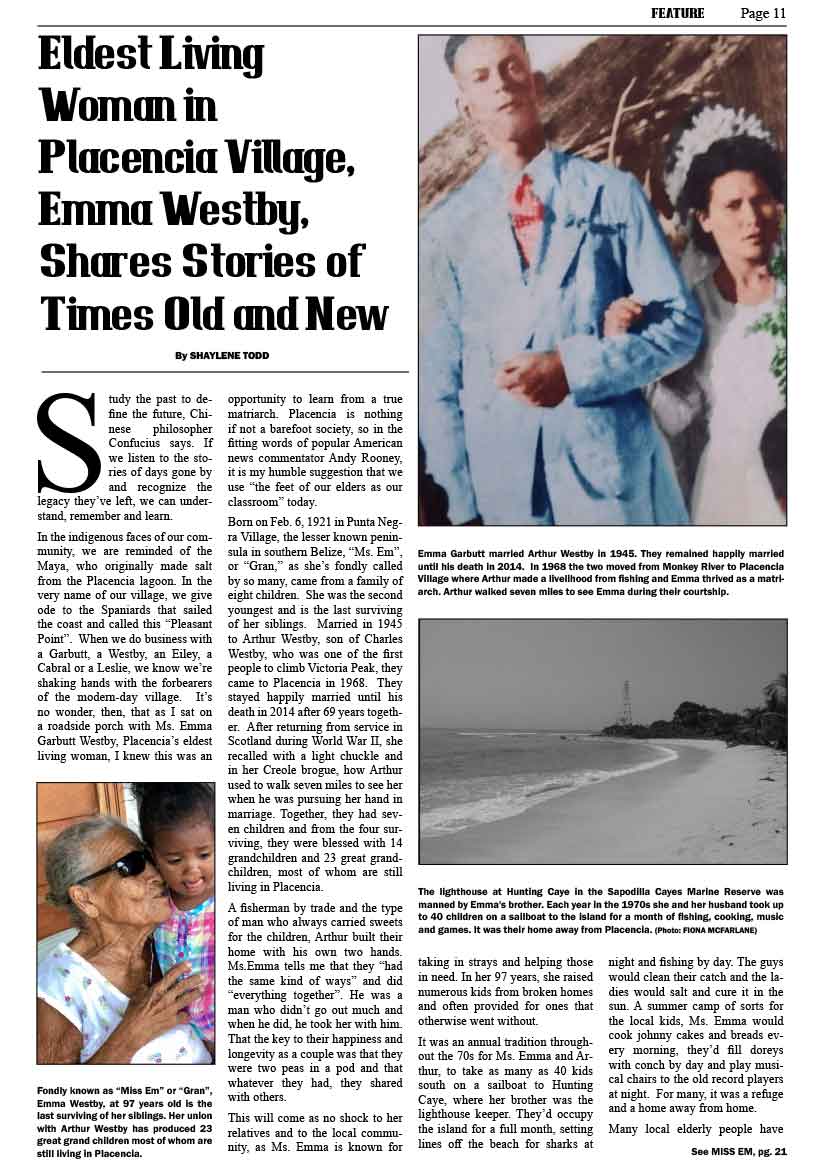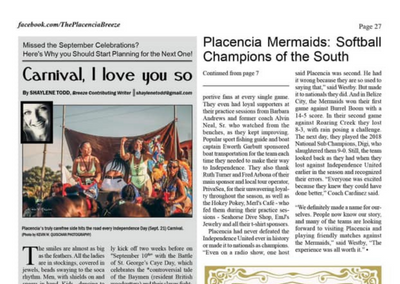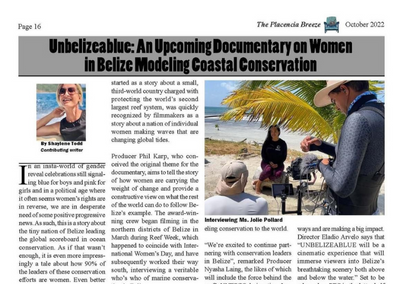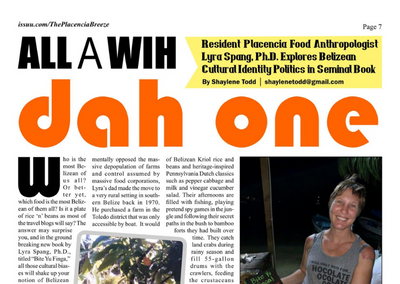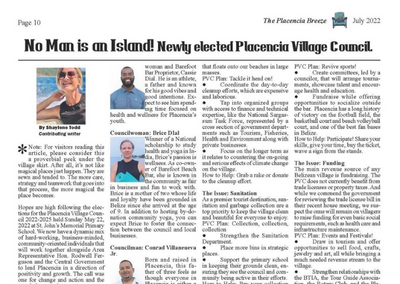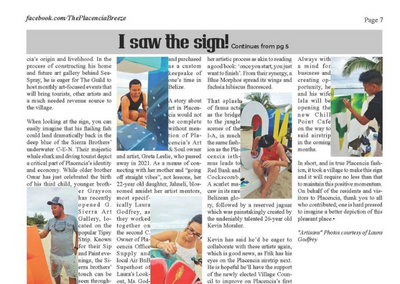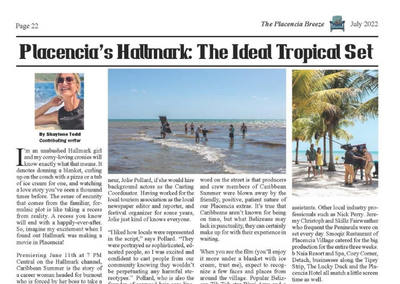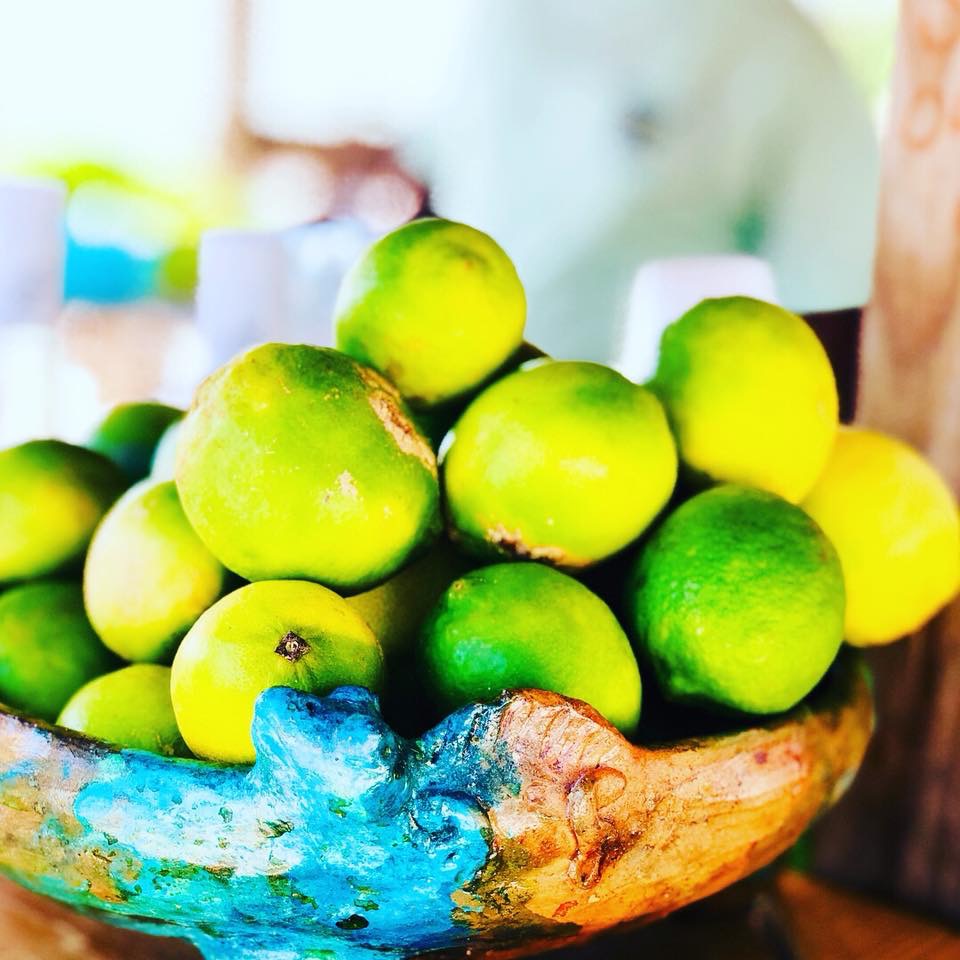Eldest Living Woman in Placencia Village, Miss Emma
In the indigenous faces of our community, we are reminded of the Maya, who originally made salt from the Placencia lagoon. In the very name of our village, we give ode to the the Spaniards that sailed the coast and called this “Pleasant Point”. When we do business with a Garbutt, a Westby, an Eiley, a Cabral or a Leslie, we know we’re shaking hands with the forebearers of the modern day village. It’s no wonder, then, that as I sat on a roadside porch with Ms. Emma Garbutt Westby, Placencia’s oldest living woman, I knew this was an opportunity to learn from a true Matriarch. Placencia is nothing if not a barefoot society, so in the fitting words of Andy Rooney, it is my humble suggestion that we use “the feet of our elders as our classroom” today.
Born on February 6, 1921 in Punta Negra, “Ms. Em”, or “Gran”, as she’s fondly called by so many, came from a family of eight children. She was the second youngest and is the last surviving of her siblings. Married in 1945 to Arthur Westby, son of Charles Westby, who was one of the first people to climb Victoria Peak, they came to Placencia in 1968. They stayed happily married until his death in 2014 after 69 years together. After returning from service in Scotland during World War 2, she recalled with a light chuckle and in her creole brogue, how Arthur used to walk seven miles to see her when he was pursuing her hand in marriage. Together, they had seven children and from the four surviving, they were blessed with 14 grandchildren and 23 great grandchildren, most of whom are still living in Placencia.
A fisherman by trade and the type of man who always carried sweets for the children, Arthur built their home with his own two hands. Ms.Emma tells me that they “had the same kind of ways” and did “everything together”. He was a man who didn’t go out much and when he did, he took her with him. That the key to their happiness and longevity as a couple was that they were two peas in a pod and that whatever they had, they shared with others.
This will come as no shock to her relatives and to the local community, as Ms. Emma is known for taking in strays and helping those in need. In her 97 years, she raised numerous kids from broken homes and often provided for ones that otherwise went without.
It was an annual tradition throughout the 70s for Ms. Emma and Arthur, to take as many as 40 kids south on a sailboat to Hunting Caye, where her brother was the lighthouse keeper. They’d occupy the island for a full month, setting lines off the beach for sharks at night and fishing by day. The guys would clean their catch and the ladies would salt and cure it in the sun. A summer camp of sorts for the local kids, Ms. Emma would cook johnny cakes and breads every morning, they’d fill doreys with conch by day and play musical chairs to the old record players at night. For many, it was a refuge and a home away from home.
Many local elderly people have “passed through heaven’s gates” from under her roof, with her caring for them right until the end. Her daughter, Lloydia, tells me that if there was a bunch of grapes, everyone in the household would get a fair share- even if it was only two grapes each. If you weren’t around when they were split up, she’d be sure to save yours for you until you got home.
Having learned to cook from her mother, and with specialities ranging from conch fritters to a double baked potato, she worked as a chef and was one of the first residents of Placencia to receive a social security card. She made contributions through her pay at Placencia Cove, now Chabil Mar, and still receives a small pension from it today.
Never one to shy away from hard work and self professed as strong, Ms. Emma used to sew clothes for the kids of the community and school uniforms for her children. She’d take apart used clothing at the seams and piece together new ones with her pedal machine. She recounts how she once saved a man who had a billed turtle clamped onto his leg by heeding her father’s advice and gouging the turtle’s eyes with her fingers until he opened his mouth.
When they received warning about Hurricane Iris in 2001, she prepared as much food as she could while her husband took charge of getting boats to Mango Creek. She tells me how, even though that hurricane would be reported as one of the worst to hit the region, it’s the tropical storm from 1945 that stands out the most in her mind as most devastating. Back then, there were no hurricane warnings at all, so their only hint at the impending mayhem was when the tide got sucked out so far they could walk where there was usually water. Newly married, she recalls how her husband’s hands were raw from holding onto a coconut tree to keep a boat full of her family safe. They lost everything in the high tides and had to rebuild with the relief supplies sent by Britain.
I marvel at the changes she must have seen over the years. How, for example, Placencia was only accessible by boat until the mid eighties. Her brother was the Captain of the Heron H that ran from Punta Negra, Punta Gorda and Placencia to Belize City in about five hours and how it wasn’t until the early nineties that BEL provided widespread electricity.
As with all things, time takes its toll and she explains that she’s not as nimble as she used to be. Reaping the benefits of a well sewed life, she now relies on her extensive family and a loving community to take care of her as she always did of others. After years of walking miles to meet her children halfway between their school and home so they could share lunch under a grape tree, she finds her knees are worn. To avoid a fall, she’s often carried by the young men in her family to get where she needs to go. She was out enjoying Lobsterfest two weekends ago, her grandson making it possible by “backing her” around the fest. It’s only in the past year that she has trouble baiting her own fishing hook, however, it was just this month that she was out fishing with her son and grandsons. She still managed to pull in her own catch on the handline and it’s no surprise that her baracuda was the biggest.
Although she’ll tell you she’s ready to go when the good Lord is ready to take her home, she’s very adamant about her secret to such a long, good life and we should all be eager to learn from it. When people ask her, “Ms. Emma, how you live so long?” she replies, “Take your Bible and read it. Honor your Mother and Father. Love your neighbor as yourself. Try to help the old ones that need help and be sure to watch the weather”.

